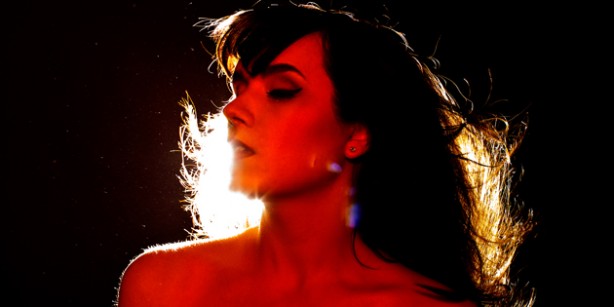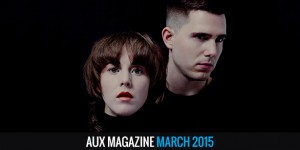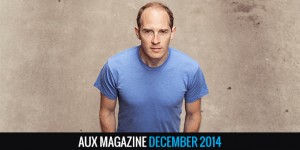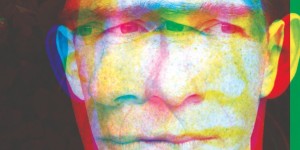 Music
Music
Q&A: Louise Burns dives into dark pop
by Mish Way
August 6, 2013
Though she built her name with pop sensations Lillix, Louise Burns has grown up.
Louise Burns has been making music since she was practically a fetus. She started the Canadian pop-rock band Lillix when she was only 11 years old and in no time her and the other three teenage girls were plucked from Cranbrook, B.C. and dropped in Los Angeles to make a record for Madonna’s Maverick label.
When she eventually left Lillix after years of touring the world and having bottles thrown at her during Warped Tour sets, Burns spent time in other bands (she currently plays bass in Arts & Crafts outfit Gold and Youth) and, two years ago, released her debut solo album, the glittery, soulful Mellow Drama. Now, after a break and a bounce back to Vancouver via Toronto and Los Angeles (again), she will be releasing her sophomore effort The Midnight Mass. This time Burns goes in a darker direction, pulling inspiration from Depeche Mode, Kate Bush, and Rowland S. Howard, exploring the marriage between gothic synth noise and pop. We spoke with her about the new record and her dive into the darker side of pop.
AUX: What was the inspiration for this new record? What kind of headspace were you in when writing?
Louise Burns: I’d just moved to Toronto and a few things went south in both my personal and “professional” life. I guess this record reflects that, but for the most part I was trying to create an atmosphere of relief while I dealt with some stuff that was less than pleasant.
What would you be doing if you were not writing music?
I’ve been in music since the age of 11, and aside from the occasional bout of university (creative writing) here and there, I’ve never been interested in much else.
What is the song “Emerald’s Shatter” about?
It’s an observation about self-indulgence and the constant need to keep one self entertained in order to avoid facing the cold facts of being a late 20-something drifter. It’s also the destruction of something that is artificially good. To create, you must destroy. That sort of light stuff.
Is “The Artist” a rip on yourself? What were you thinking about when writing that song?
I’m pretty sure almost all my songs are a slight rip into myself. It’s my self destructive nature [laughs]. But I reckon this one came from hearing one too many “woe is me, no one likes my beautiful poem I wrote on a vintage typewriter” stories from poor, tortured artists.
Tell me about working so closely with Sune Rose Wagner of the Ravonettes and how he helped shape the record.
Working with Sune was surreal to me. He’s sort of a dream producer in a sense that he gives you the decisiveness and constructive criticism you need to take an album to the next level. He encouraged the more synth-oriented direction many of the songs ended up taking, as well as helping me with my vision of a more cinematic production. We listened to a lot of soundtrack music for ideas. He also works in his house which is very exposed to sunlight and a view of Los Angeles that I found inspiring. Felt the desert vibrations. Los Angeles is sort of my spirit land.
What is the most important/inspiring record to you and why?
Love’s Forever Changes. I don’t know what it is about that record but it keeps me engaged the entire way through. It has the saudade that I yearn for in music! Tragic, dark, uplifting, beautiful, melancholy yet anthemic. Also Rowland S. Howard’s Teenage Snuff Film. He’s my favorite guitarist. His music makes me feel like I’m living inside Wings Of Desire. It’s romantic. A whole lot of soul. He was a beautiful human and I highly recommend the documentary about him, Autoluminescent.
You are touring soon. It’s been a while since you toured your own stuff. How are you preparing? How do you feel about doing this record live?
I’m excited to play this record live. There are so many textures and dynamics to work with in the new stuff that I am curious to see how people react. The last record was difficult for me to get across live. I kept feeling like a “throwback artist” which is very boring. Plus I have a killer band and get to tour with one of my favorite bands right out of the gate (Lightning Dust).
You grew up touring in a band, do you ever feel as though you missed out on certain regular teenage events?
Most of the regular teenage events and rights of passage I was quite happy to not have. I really did not like being in high school. Too many hormones and shitty people. I valued my weirdo teenage existence and would not change it for the world. I was able to get my ye-ye’s out in a different way and learn about life in a more interesting setting. Having a lot of adult responsibilities at a young age was a bit of a bummer, but in the end I’m a pretty lucky gal to have had that experience.
Do you have any regrets?
I wish I had finished my Royal Conservatory of Music in piano, and that I had spent more time learning how to use Pro Tools.

This article originally appeared in the August 2013 Issue of AUX Magazine.
Download and subscribe for free in the app store.
Tags: Music, News, AUX Magazine, Lightning Dust, Lillix, Louise Burns





